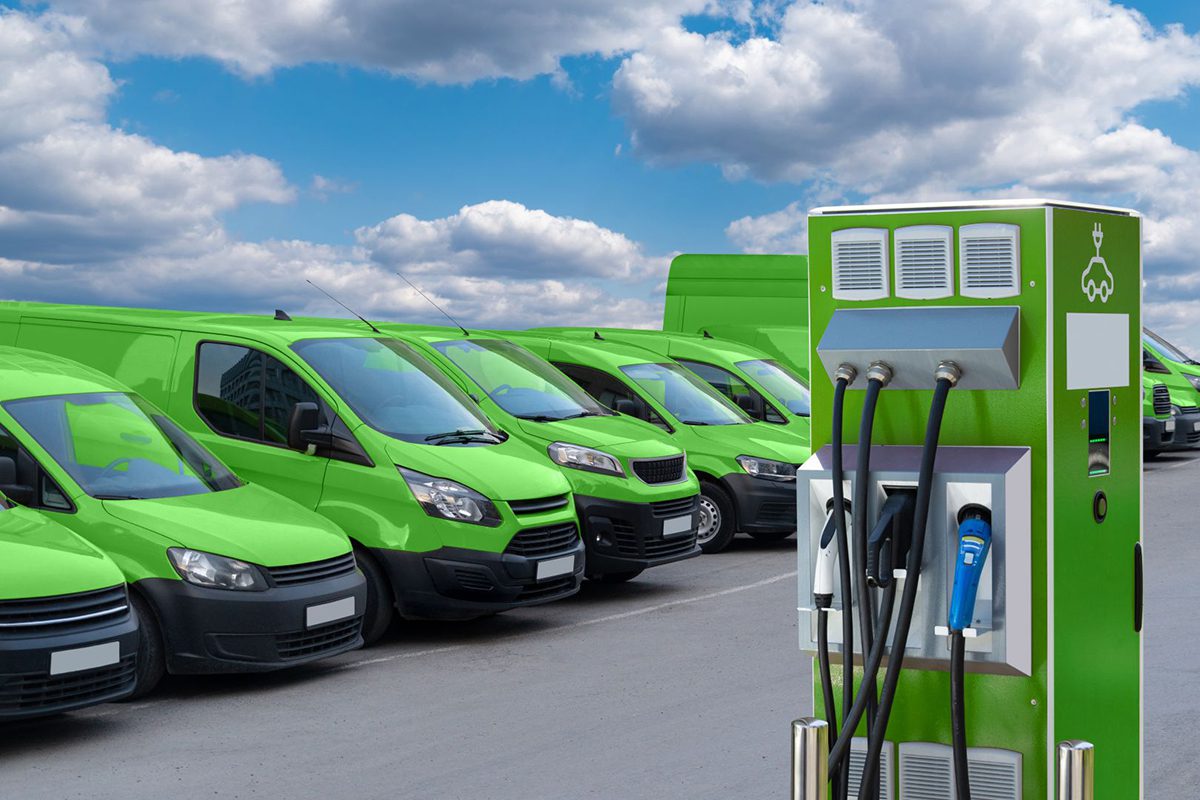Today, businesses of all sizes recognize the importance of adopting eco-friendly practices. One significant way to achieve this is by transitioning to an electric vehicle (EV) fleet. But what impact will this have on your fleet’s total cost of ownership (TCO) or your bottom line?
When it comes to TCO, many still believe diesel is king. There’s certainly some merit to this notion — upfront costs for EVs can indeed be higher. However, here’s the crucial point to consider: TCO is a long-term game. While the initial investment in EVs may require a more substantial financial commitment, the returns over time are substantial. EVs offer significant savings in key areas.
First, there are fuel costs to consider. Electricity tends to be more cost-effective than gasoline or diesel. Furthermore, charging an EV is often still significantly cheaper. Second, maintenance costs for EVs are notably lower. With fewer moving parts compared to traditional internal combustion engine vehicles, EVs require less frequent, and less expensive, maintenance.
Rather than committing fully from the outset, there are several strategies to gradually integrate EVs into your fleet and assess their impact on TCO. One approach is to phase out gradually, which allows you to gather valuable data on maintenance requirements, charging infrastructure needs, and overall efficiency.
Businesses could also consider micromobility options, like electric cargo bikes or light electric vehicles (LEVs), suited for shorter trips and urban deliveries. Embracing these options positively impacts TCO but also enhances your brand’s image as a sustainable organization and may reduce congestion in city centers.
Impact of EVs on TCO goes beyond just vehicles themselves. Additional factors include:
- Subsidies and incentives: Governments may offer tax credits, grants for charging infrastructure, or reduced registration fees.
- Charging infrastructure: Consider your fleet’s needs in terms of range and related charging, and research charging options in your area.
- Optimizing charging strategies: Try taking advantage of off-peak electricity rates or installing solar panels to generate your own clean energy, such as a battery energy storage system.
- Choosing the “right” technology: Next to EVs, fuel cell vehicles are also expected to play an important role in the transition to a more sustainable fleet. Understanding the needs of your business and weighing the characteristics of both technologies is key to making the right decision for investments.
“While other countries are further along in their EV journeys, especially in Europe, it’s important for companies in the U.S. to start the transition now to get ahead of imminent regulatory changes,” says Melissa Biebel, U.S. eMobility Account Manager for DLL. “Beyond achieving a positive TCO, moving towards an electric vehicle fleet will be a good move for companies as consumers are starting to prioritize environmental consciousness in their purchasing decisions.”
DLL understands the intricacies of financing a reduced emission fleet and can help you to unlock solutions that make the transition to an EV fleet more manageable. They can help you structure a financing plan that aligns with your budget and cash flow, allowing you to reap the long-term TCO benefits of EVs without getting tripped up by the initial investment.
DLL is here to partner with you for a greener future. Some examples of DLL’s financing solutions include:
- Residual value options to allow you to leverage the asset’s value at the end of the lease term, potentially reducing your overall financing costs;
- a variety of flexible financing options to fit your budget and cash flow; and
- help to navigate the complexities of subsidy programs and help with integration, maximizing cost benefits of equipment.
With careful planning and the right financial partner, you can transition to an (FC) EV fleet and unlock a world of benefits for your business, the environment, and your bottom line. Read more about DLL’s eMobility financing.
Are you attending ACT Expo 2024 in Las Vegas May 20-23? If you are interested in meeting with Melissa or any of DLL’s eMobility team members, please get in touch with them today.



